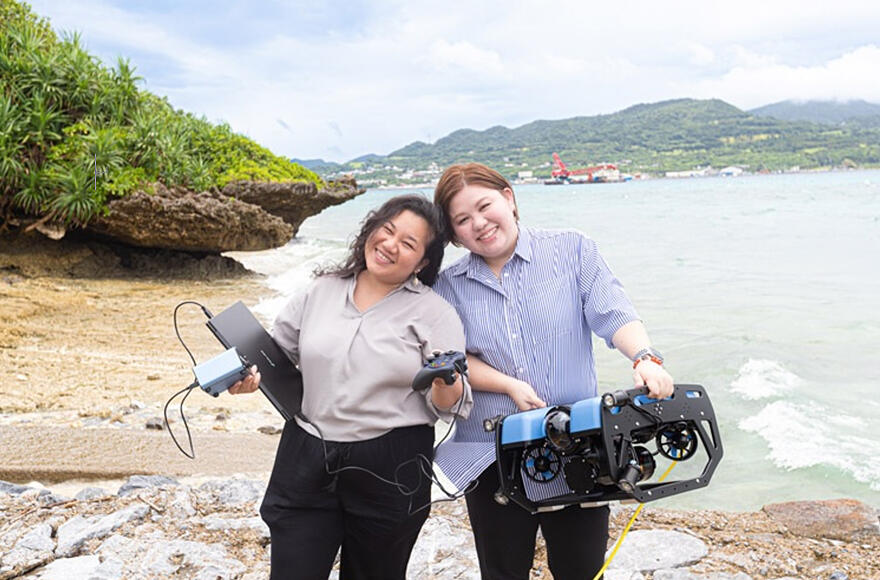
As an island nation surrounded by the sea, Japan possesses vast undersea resources. However, in order to utilize these resources, smooth undersea movement and communication are necessary, and new technologies to achieve this are being developed through international collaboration. This article focuses on the duo of Shiho Oshiro, a graduate student at the University of the Ryukyus, and Yukiko K. Muller, a student from the Marshall Islands, who have studied extensively around the world and are aiming for a practical "underwater drone" that can be wirelessly controlled.
Towards utilizing resources hidden beneath the waves
Shiho and Yukiko are conducting their experiments at Sesoko Station at the University of the Ryukyus, which faces the East China Sea. "I have a strong attachment to drones that I assembled myself." Shiho said with a smile. There is a kind of inevitability behind the fact that these two women formed a pair.
Japan is an island country in the Pacific Ocean with a small land area, most of which is mountainous and forested. Because of this, Japanese people have developed their industries by making use of their limited land space, but they rely almost entirely on imported energy, such as petroleum, and on minerals from overseas.
On the other hand, the size of Japan's exclusive economic zone (EEZ) is extremely large, ranking sixth in the world. Furthermore, it has become clear that abundant energy resources and mineral resources lie dormant at the bottom of these waters. If these resources beneath the waves can be utilized, then it will lead to Japan's energy problems being improved and industry being revitalized.
To that end, it is necessary to be able to move and communicate underwater in the same way as on land. Tomohisa Wada, the Dean of the Faculty of Engineering at the University of the Ryukyus, is aiming to establish these kinds of technology in cooperation with countries in the Asia and Pacific regions and is conducting research and development on underwater drones that will be responsible for wireless communications. Shiho and Yukiko are two of the people working hard in this area.
Coming to Japan from the Marshall Islands to pursue a specialization
Yukiko is originally from the Marshall Islands, and received her Bachelor of Science degree from Taiwan, where she majored in computer science. To further specialize, she participated in an educational program in Morocco before coming to Japan with assistance from the Japanese government.
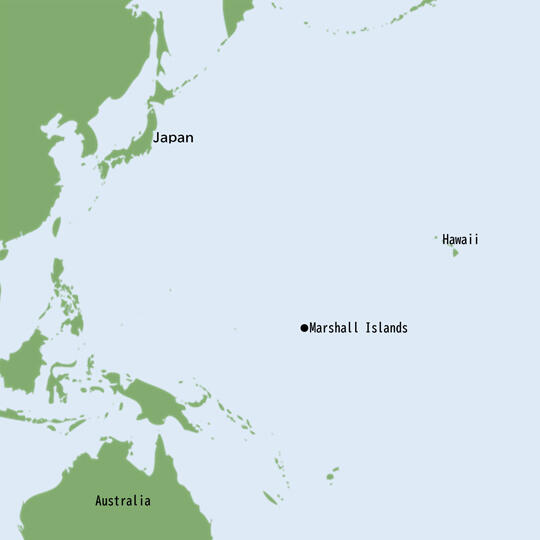
The Marshall Islands is an island nation located between Hawaii and Australia. It consists of approx. 1,200 islands and has a small population of about 50,000. Yukiko said, "In the Marshall Islands, there weren't many people specializing in computer science, but I was interested in it and started learning." As a result of acting on her curiosity, she has come to where she is now.
She also has compelling reasons for her studies. 97% of the area in the Marshall Islands is covered by the ocean, and the average elevation is only 6 feet (182 cm) above sea level, so utilization of seafloor resources is essential to national prosperity, and underwater communication is a technology that will support this. Yukiko's awareness of these issues coincided with the research problems being pursued by Wada, so in October 2020 she entered the doctoral program at the University of the Ryukyus and sat next to Shiho.
In this project, Shiho and Yukiko are researching different basic technologies. According to Shiho, "Underwater communication technologies are not well known today, but I heard that they will become common in 20 years, and felt a strong pull towards research that looks towards the future." Since she was an undergraduate student, Shiho has continued research on the theme of advancing and speeding up underwater communication.
Yukiko, on the other hand, is using a computer science approach to establish algorithms for underwater positioning calculations. "The combination of our research interests led to the creation of an underwater drone that can be controlled wirelessly," says Yukiko.
Studying abroad in India and Cambodia
When they first set their sights on developing an underwater drone, the lab didn't have the know-how to handle it. Because of this, Wada and Shiho participated in the "Drone Engineer Training School" that is run by Drone JAPAN. Most of the teams dealt with aerial drones, but Wada and Shiho teamed up with students from the National Institute of Technology Okinawa College and working adults to simulate group control of multiple drones that are moving in the water at the same time. Their work was highly evaluated, and they were given the Best Team award, which is usually not presented.
In this way, Shiho has an unusually strong will to seize opportunities and learn. This attitude has, without a doubt, contributed to constructing a cooperative system with companies and the National Institute of Technology, Okinawa College. Shiho also enthusiastically volunteered when the idea came up of studying abroad in India or Cambodia.
In her first visit to India, Shiho struggled with how quickly everyone was speaking English, but the local students helped by actively trying to communicate with her. Shiho points out that, "Even if you can only speak a few words, if the other person understands the meaning and responds, then you can have a conversation. Once I began to think that was all right, then I was able to absorb everything much faster." Now Shiho is busy taking advantage of her newfound fluency in English to help other international students.
Yukiko was also inspired by Shiho, saying, "I must also do my best." Shiho also admires Yukiko. "Yukiko is always so cheerful, and she's different from me when it comes to learning. She concentrates, concentrates, concentrates, and pushes through, no matter what. Her attitude is always so inspiring to me."
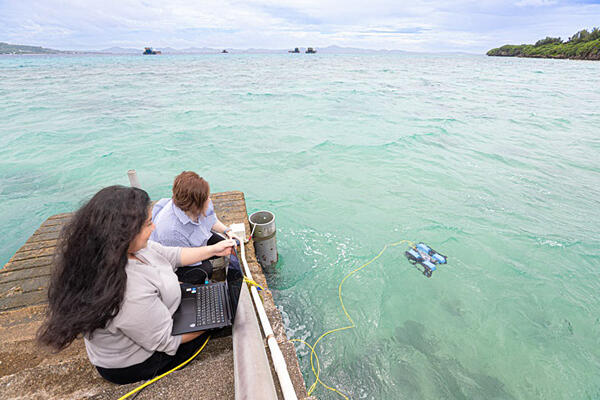
Wada, who is watching over them, proudly said, "Everybody likes their personalities, and they create connections with so many people and organizations. I don't think that this project would be possible without them."
Currently, using their first underwater drone, a demonstration experiment that combines Yukiko's research program and Shiho's communications technologies is underway. The companies that are collaborating with them are also looking forward to the results.
Measuring underwater position information using sound waves
While aerial drones use radio systems to get GPS-provided information about their current location and destination, underwater drones still mostly rely on wired navigation. Because GPS transmits information by using radio waves, the signals cannot reach underwater. As such, Shiho and her colleagues are trying to establish a new wireless positioning system that uses sound waves.
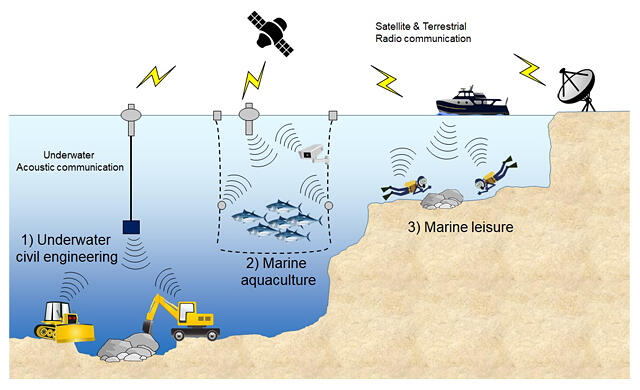
Provided by Shiho Oshiro
As Shiho explains, "Autonomous underwater vehicles (AUV) equipped with sensors are also being researched and developed, but this is an expensive project that requires large equipment. We are trying to build one based on commercially available drones." Eventually, we hope to create a system that, while being wirelessly controlled, can search underwater and the seafloor, acquire image data, and then promptly transmit that data to base stations in the water.
The desire to increase the number of women who aim to become researchers
Yukiko plans to return to her home country after completing her doctoral course in September. She said that she has already decided to participate in a World Bank project next.
In the male-dominated Marshall Islands, it is extremely rare for a woman to be assigned as a dedicated engineer to a national project like this. "I always wanted to get an education first, and I had the chance," says Yukiko. In her home country, she is expected to be the second woman to have completed a doctoral course, after former president Hilda Heine, who was the first.
Yukiko is also thinking about her future. "I don't have any concrete plans yet, but I would like to contribute to children's education. That is the kind of thing that will lead to making us a stronger country."
On the other hand, Shiho stated that, "My dream is to become a faculty member at the University of the Ryukyus." Engineering is a field with few women, but "Given the challenges unique to women, such as childbirth and childcare, I hope that this will serve as an opportunity to increase the number of female researchers by demonstrating that even women can advance to a doctoral course and play an active role in academia."
Shiho didn't choose physics in high school, but she passed the AO entrance exam to enter the Faculty of Engineering, which is considered to be very difficult. Since then she has thoroughly pursued her specialty, meeting with her mentors and taking advantage of opportunities to study abroad.
It goes without saying that she has put in an extraordinary amount of passion and effort. As a result of her solid achievements in the master's course and excellent grades, she was exempted from the full tuition fee for the doctoral course. Additionally, she was also able to receive support for study abroad expenses through a global human resource development project for female graduate students.
According to Yukiko, "It's important to move forward with a positive mind, even if it's difficult, without being afraid to try new things." Together with Shiho, who has become a faculty member, she reveals that she has a dream of starting an underwater communication business in the Marshall Islands.
If human resources with diverse backgrounds and experiences that transcend national frameworks gather and share their knowledge and know-how, then research and development will undoubtedly accelerate. Shiho and Yukiko, and the young people who will follow them, will pave the way to a prosperous future.
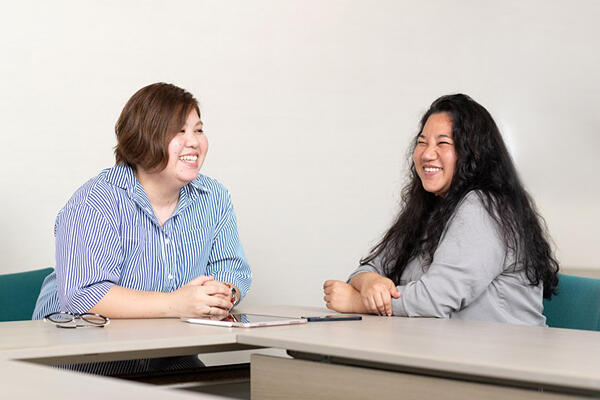
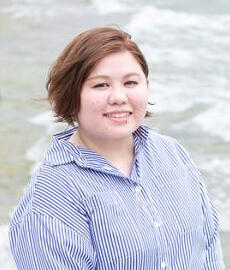
Profile
OSHIRO Shiho
Graduated from the Department of Computer Science, Faculty of Engineering University of the Ryukyus. After completing a master's degree in Information Engineering at the Graduate School of Science, Engineering and Technology (now the Computer Science and Intelligent Systems), she entered the doctoral program in Interdisciplinary Intelligent Systems Engineering at the same university. She has participated in training programs in Taiwan, India, and Cambodia since beginning her master's studies.
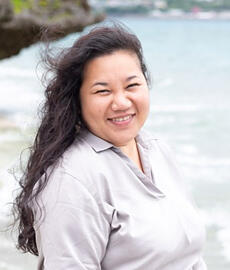
Profile
Yukiko K. Muller
Born in the Marshall Islands, and holds a bachelor's degrees in computer science from Taiwan and Morocco. In 2020, she entered the doctoral program in Interdisciplinary Intelligent Systems Engineering at the Graduate School of Engineering and Science, University of the Ryukyus.
Original article was provided by the Science Portal and has been translated by Science Japan.




